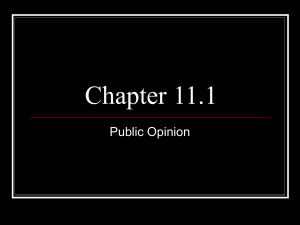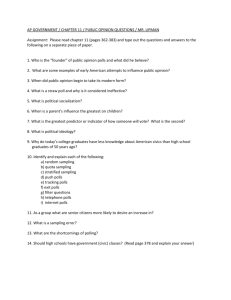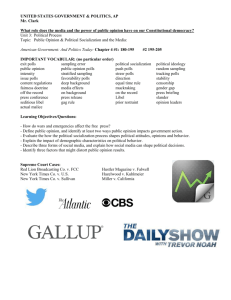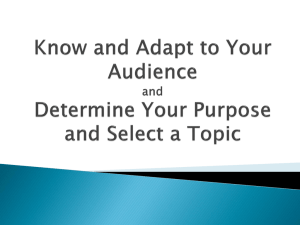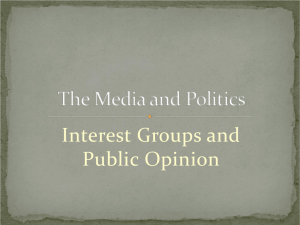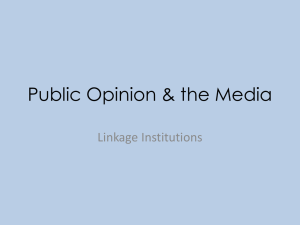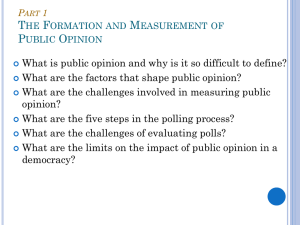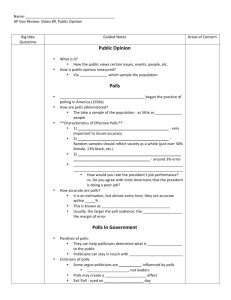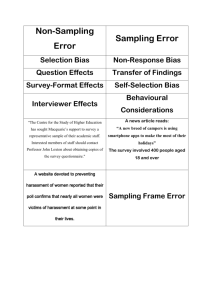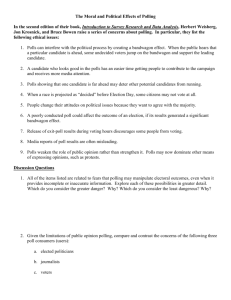Forming Public Opinion
advertisement
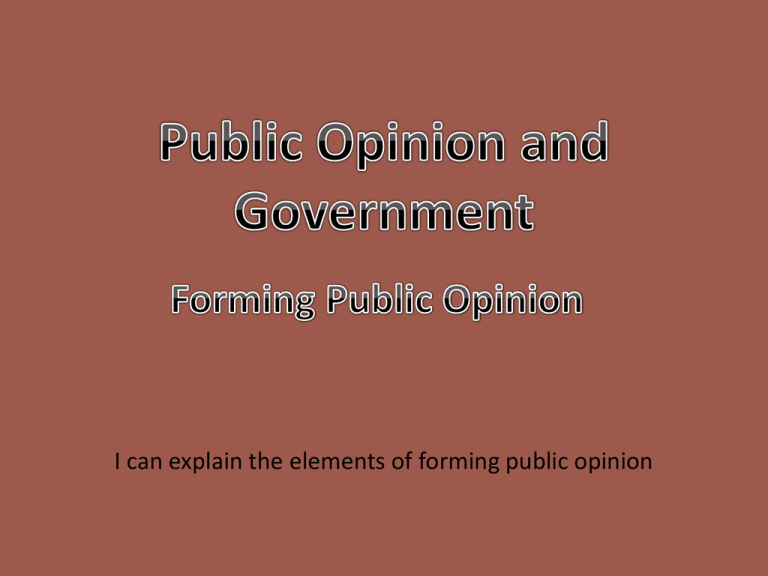
I can explain the elements of forming public opinion Public Opinion Public opinion, the ideas and attitudes most people hold, plays a vital role in our democracy. -Public opinion is a term that refers to the ideas and attitudes that most people hold about a particular issue or person. Role of Public Opinion -Public opinion helps shape the decisions of every president. -Understanding public opinion can also help presidents make effective, timely decisions. Diversity -On any given issue, different groups of the “public” often hold different viewpoints. Sources of Public Opinion -The factors that influence public opinion are a person’s background, the mass media, public officials, and interest groups. Personal Background -People’s lives and experiences have a major influence on their opinions. -Age, gender, income, race, religion, occupation, and place of residence play important roles in people’s lives. The Mass Media -Television, radio, newspapers, magazines, recordings, movies, Internet Web sites, and books are called the mass media. Public Officials -Political leaders and government officials can influence public opinion. Interest Groups -Individuals who share a point of view about an issue sometimes unite to promote their beliefs. They form an interest group. Features of Public Opinion -Public opinion is often described in terms of direction, intensity and stability. Direction -One important question is whether public opinion on any given topic is positive or negative. Intensity -Intensity refers to the strength of an opinion on a given issue. Stability -The stability of public opinion, meaning how firmly people hold to their views, may differ greatly from issue to issue. -People’s opinions are less likely to change when they have a firm belief. Measuring Public Opinion The most common way of measuring public opinion is with public opinion polls. Public Opinion Polls -Measuring public opinion by looking at election results is not always reliable. -A more accurate measure is to request individuals answers to questions in a survey, or a public opinion poll. What Do Pollsters Do? -Most presidents have a specialist-a pollster, whose job is to conduct polls regularly. The pollster measures the president’s popularity or public attitudes toward possible White House proposals, such as a tax increase or change in immigration policy. Random Samples -Pollsters usually question a group of people selected at random from all over the United States. -A well-constructed sample will reflect the characteristics of the entire population, so that it can present a reasonably accurate picture of public opinion as a whole. Push Polls -Polls in which the questions are worded so as to influence a person’s responses one way or another are called push polls. Support for Polls -Some people believe that public-opinion polling serves a useful purpose. -Polling allows officeholders to keep in touch with citizens changing ideas about issues. Problems With Polls -Some claim polling makes our elected officials more concerned with pleasing the public rather than exercising political -PROS Approval or disproval of the way the officials are doing their job -CONS -Trying to please the public instead of making good decisions for the common good -Polls may discourage voting. If they show one candidate far ahead of another. Some people may decide not to bother voting because they think the election has already been won or lost. http://www.youtube.com/watch?v=tVpKgMCtukk http://www.youtube.com/watch?v=ubR8rEgSZSU http://www.youtube.com/watch?v=5AuRj4M4KEA Sources of Public Opinion
